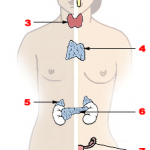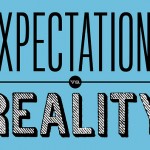Dr. Erika Saunders, chair of psychiatry at Penn State, says there are some distinct depression warning signs to watch for. Read the News
The Medical Minute: Many Different Factors Can Trigger Holiday Depression
The Scientific Reasons Why You’re Feeling Depressed
Are you waking up just feeling “blah”? Like you don’t want to do anything except lie like a couch potato and watch TV, and even that is unsatisfying? You not only feel low energy, but kind of miserable. Perhaps you’re mad at yourself for not getting the house cleaned or not getting your work done and papers filed. Perhaps you’re feeling a bit lonely, left out by friends or unsupported by family. You may dwell on mounting bills or the fact that you’re 10 or 20 pounds overweight. You may feel aches and pains in your neck or back. Or you may just may feel grouchy and want to remain undisturbed by life’s demands and conversational opportunities. You may compare yourself unfavorably to your friend, roommate, cousin, or neighbor, who always seems to be on time, well-groomed, and on track to meet her goals. We all have those “blah” days, but why do they happen and what can we do about them?
Brain Chemicals
Some of us have brains that are more sensitive to the effects of stress. Researchers are just beginning to uncover the biochemistry behind this differential. The most common forms of antidepressants target the neurotransmitters serotonin and norepinephrine because research shows that low levels of these chemical motivators are part of what makes us depressed. However, only some people respond well to the most common forms of antidepressants, while others try drug after drug with no substantial mood improvement. A recent research study may reveal the reason why. A study published earlier this year in Proceedings of the National Academy of Sciences suggests that differences in the way our brain’s process a chemical called galanin makes some of us less resilient and able to bounce back after difficult experiences.
The Weather
Less sunshine during the winter months can give us the blues, and this effect is more pronounced for some people than others. Researchers Keller and colleagues studied hundreds of people and found that during the spring, moods improved along with doing more outdoor activities. We are also more cognitively flexible and able to think creatively about solving our problems in the spring, compared to winter. A subgroup of us suffer from Seasonal Affective Disorder in which the winter blues turn into full-blown depression along with associated changes in sleep, appetite, and motivation. Sufferers are more likely to be women. Exposure to outdoor sunlight also provides us with vitamin D; a substance with clear links to depressed mood.
Vitamin D
Most people in the US have insufficient or deficient levels of Vitamin D. The reasons are not clear, but could be related to nutrition and insufficient sun exposure. People with dark skin are more vulnerable to vitamin D deficiency, due to a decreased ability to process vitamin D from sunlight. Vitamin D deficiency has been statistically linked to depression. In a large Dutch study by Hoogendijk and colleagues (2008) of over 1,200 persons aged 65 and older, levels of vitamin D were 14% lower in persons with minor depression or major depressive disorder when compared to those not showing depressed mood.
Hormones are substances produced by the endocrine glands that influence many bodily functions, including growth and development, mood, sexual function, and metabolism. Levels of certain hormones, such as those produced by the thyroid gland, can be factors in depression. In addition, some symptoms of depression are associated with thyroid conditions. Hormones fluctuate during the menstrual cycle and may create vulnerability to sad or depressed mood in the premenstrual period, as well as during peri-menopause, and menopause. There are individual differences in how much our moods are vulnerable to the effects of hormones. If you are more vulnerable, you may want to consult a physician to see if medications are needed to help regulate your hormones. Or you could try alternative medicine treatments, such as acupuncture to reduce hormone-related mood imbalance.
Expectations
Our moods are not only a function of what happens to us, but also of how we view the events in our lives and the meanings we assign to them. There are stages in most of our lives in which we seem to be working hard and doing all the right things, but don’t see many external rewards coming our way. We may not be paid what we feel we are worth or be able to afford as nice a house, car, or vacation as our friends. We may struggle to find the right partner while our friends or siblings seem to have no problem finding love. We may have to work longer and harder than our friends to get the same grade on a test or earn a living. We may experience a difficult breakup or loss. Life just naturally isn’t fair and periods of struggle, suffering and loss are inevitable. If we expect fair or special treatment all the time or expect things never to change, we are bound to be disappointed. So if you’re feeling sad because of recent events, remind yourself that hard times are part of life and will pass. Or deliberately broaden your view and focus on the good parts of your life or the experiences you are proud of.
Childhood Adverse Events
Stressful life events can wear down our physical and mental resources, making us more vulnerable to both depression and physical illnesses. A history of childhood trauma, including abuse, poverty, or loss of a parent, can reset our developing brains to be less cognitively flexible. It seems that our brains naturally go into a “fight, flight, freeze” response to stress or threat and we often have to use our prefrontal cortex or executive center to get out of this state. Prolonged stress in childhood can make our brains less interconnected and resilient.. Our brains can more easily get “stuck” in negative thinking patterns or stressed out states and we become less able to change tracks.
Stresses Piling Up
As Robert Sapolsky argues in his book Why Zebras Don’t Get Ulcers, our human stress response systems were designed to respond to acute, time-limited stressors that normally require a physical response. When our ancestors had chased off that marauding tiger, they could relax and eat. The stressors in today’s world are much more chronic and less controllable by taking action, and we often don’t get the break afterwards to recover and regroup. Financial stress, loneliness, constant fighting with loved ones, being bullied, long commutes, academic or job demands, or unemployment can drag on and have a cascade of effects across many areas of our lives. When stresses hit us one after the other without time for recovery, they can leave us depleted and despondent, with insufficient pep to bounce back.
Negative Ruminations
You may be feeling bad because you’re sitting around brooding about life’s disappointments or trying to find a reason why things aren’t going your way. Research studies by University of Michigan psychologist Susan Nolen-Hoeksema and colleagues show that sitting around thinking about your negative mood or negative events just makes everything worse! One negative thought leads to another until you get buried in a mountain of problems and negative predictions. This leads to a loss of perspective and motivation that interferes with actually doing something about the problem! If you find yourself in a negative thinking cycle, get up immediately and do something else pleasant or neutral to engage your mind. This can be as simple as emptying the dishwasher, rearranging your closet, going for a walk, talking to a friend or getting on with a work project.
Your Inner Critic
Do you have a critical inner voice constantly judging and criticizing everything you do, especially when things don’t go your way? The inner critic compounds the effect of anything negative in your life by blaming you for it. It keeps drawing your attention to the negative and spoils your pleasure when something positive happens by telling you ”it won’t last” or “you don’t deserve it”. This negative dialogue takes you out of the moment and makes you feel depressed. Negative thinking is, at minimum, a symptom of depression, and may be a causal factor in interaction with negative life events. The first step to combat an inner critic is to become aware of what it’s saying. Second step is to externalize it. You could give your critic a name and imagine what it looks like (e.g., a grumpy old crone or a vicious barking dog). Then begin telling it to back off or talk back to it. The inner critic generally has a negatively biased perspective and overestimates your responsibility for and control over outcomes in your life. It also often has perfectionistic expectations. Tell it to give you a break for a change!
Loneliness
Our human brains are wired of be part of a social group, and we experience loneliness as chronically stressful and depressing. Unfortunately, some of us have toxic or neglectful families that don’t provide support or presence when we need it. Or we may feel that our friends are moving on in finding romantic relationships or having kids and leaving us behind. Research using fMRI brain scans shows that even minor social rejection lights up the same areas of our brains as physical pain. Feeling left out, rejected, or excluded makes us sad and can also lead to rumination about what is wrong with us that further darkens our moods. We become scared of further rejection and isolate ourselves, perpetuating the negative cycle. While there may not be a immediate cure for loneliness, it helps to get out in the world and pursue your natural interests, which can lead to expanding your social network. Staying in touch with old friends or family and deliberately seeking opportunities to connect may help as well.
Final Thoughts
The reasons for a down mood may be multifaceted and difficult to determine. If you feel depressed for two weeks or more, seek a medical consult to rule out or treat underlying biological factors. Consider consulting a mental health professional for help in managing stress and expectations, negotiating life changes, or dealing with the emotional aftereffects of past traumas and dysfunctional families. If you can’t afford therapy, antidepressants may help to change the underlying biology. Exercising outdoors can provide both sunlight and mood elevation. Develop a toolkit of stress-reducing activities, such as regular exercise, yoga or meditation, watching funny movies, playing team sports, doing something creative or novel, hanging out with and/or confiding in understanding friends.
By Melanie Goldberg, Ph.D.
Dr. Goldberg is a clinical psychologist with a private practice in Mill Valley, California.
Dark Days Here For Folks With Seasonal Depression
U.S. News & World Report reports, “October’s shorter, darker days can trigger a type of depression, known as Seasonal Affective Disorder (SAD) which starts in October and lasts until the middle of April,” experts say. Read the News
Be Mindful This Autumn
Autumn is the season we associate with harvest and abundance. It is also a time we connect with nature’s waning energy as it prunes and cultivates.
This year, autumn began in the Northern Hemisphere on September 22. Where my family and I live in the Berkshire Mountains, mornings open with a chill in the air and the crackle of dry leaves scattered on the ground. Afternoons are warm early in the season—they can still feel like summer sometimes. Depending on where you live, you can see some people walking around shorts and t-shirts and others wearing sweaters and heftier coats, until the latter becomes the norm. Autumn nights get colder and deepen into a dark, clear, star-studded sky. The chill in contrast to the heat we felt all summer brings with it the smell of cider, wood smoke and bonfires, and many other seasonal scents. Days begin their descent into darkness much earlier and the nights and mornings get progressively colder.
Amidst all of autumn’s loveliness, we have to remember to cultivate and conserve our own energy.
As nature’s energy cycle dips and your world of relationships, work, sport, family, friends and more … does not lessen its demands an iota, perhaps increases the pressure—and add to that the upcoming holidays and all of their special demands—it’s easy to over-do things and/or miss something important.
One way to avoid the yearly imbalances that are often predictable during this season is to be mindful of how they manifest. The following is a list of five important areas to pay attention to
1. Feelings of low or no inspiration.
When you are low in energy you can feel low in inspiration. If that happens, especially in situations in which you need a more adaptable, inspired mindset, you may experience gridlock and the difficulties that it generates in relationships, the ability to move forward with a good idea or rid yourself of a bad one, as well as feelings of detachment and even depression.
Take action: First thing, get your energy flowing. Try adding exercise or a new exercise program. How about: Tai Chi, Yoga, or Chi Kung. These are all good as are jogging, swimming, hiking (absorbing the brisk seasonal scents and colors), and many more. One friend of mine tells me she simply cranks up her stereo and dances.
Take action: Be social and accept congeniality and hospitality form other.
Take action: Watch your nutrition and especially check your cravings that come around the holidays. Over-eating this time of year is a common problem. Try drinking lemon and water, particularly warm, to help curb your appetite.
Take action: Autumn is perfect for introspection and self-awareness. Try this to get you fueled: As yourself—what if tomorrow you could do whatever you want with your life? What if financial concerns were of no matter? What would you do differently to be the person you want to be? I know this may sound impossible for most of us, but roll with the possibility for just a few minutes. What would you do to grow yourself if money were suddenly of no concern? After all it’s just a thought. The reason I am asking you to do this is that this playful thought can give you direction and inspiration to see and begin pursuing what is meaningful for you. Then start scaffolding your way.
2. Feelings of worry.
It is common during this season when energy is in decline to experience worry. Some individuals express this in the inability to let go of certain facets of their life—including ones that are damaging. Other individuals may become driven to the accomplishment of certain goals to the detriment of others that may be of greater importance. Worry will disturb your sense of flow and positivity and will leave you drained if you don’t keep it in check. Be aware of the tendency toward feel-good compulsions, especially as to the holidays approach. A gentle self-reminder can prevent you from chasing after some risky rewards and better soothe anxieties.
Take Action: Step back. Ask yourself what’s going on? Ask: Are my feelings evolving from internal or external aspects of my life? What are these? Ask: Are they reasonable? Ask: How are they affecting other aspects of my life? Ask: How have similar worries affected me in the past? Do I need to change that? What part? Ask: What life-style changes do I need to make to stave off my ruminations? Start making these changes and reward yourself in an appropriate way for making them. Adding exercise to your daily regiment will help build positive energy and keep it flowing. If you already exercise, add something new: a new routine, a new piece of equipment, etc.
3. Narrow Focus.
Attention can generally be an issue during times of low energy. During autumn it is easy to get focused too tightly on one thing or another you are pushing yourself to accomplish before the year’s end. This can dry up your energy reserves fast and negatively influence your thoughts, feelings, and responsibilities.
Take action: Do pay attention to your goal but not to the point of fatigue. Step back every now and then and widen your lens. Be sure you are not missing other important information regarding your goal as well as other responsibilities and concerns. Also, remember by sticking only to your comfort zones, you may be missing out on something new and potentially very good.
4. Feelings of Sadness.
Sadness and grieving frequently manifest in autumn. These can begin a downward cycle that gets bigger and harder to control. The easiest thing for us to do is deny we are experiencing sadness and grief. But then that abdicates stewardship of your own mind to someone (or something) else.
Take action: Use distraction. Perhaps it is through high torque sport or through socialization or music or film or theater. Sometimes just a walk in the chilly air or a swim in colder water is sufficient to reset your compass long enough to help you step back. Then ask: What is the source of my feeling? Ask: What personal lenses (values, opinions, beliefs etc.) am I putting on the situation? Ask: Which of these are driven by my sadness? Ask: What other filters (culture, associates, etc) are telling me I should feel sad? Why? Ask: Is this true? Is this responsible? Is this particular to my case? Am I being swayed? How is their situation like my own? Unlike? What are the immediate and long-term benefits or liabilities of such thinking? To me? To others? Take action: Make yourself aware of how this sadness affects your daily goals. Take action: Challenge the filters you were using to justify your initial sadness.
5. Burnout. When the year is coming to a close, energies are declining, days are shortening and the holidays are around the corner, it is easy to want to get certain jobs out of the way. Burnout this time of year is not only predictable but can come on like clockwork. Take action: Make yourself aware. But don’t do less with your time. Instead do more – more satisfying things. So you may need to focus on time-management and be sure to make space for plenty more activities that will make your spirit soar.
To optimize your activities, seek tranquility this season and preserve your energy. Spend time centering and exploring more about who you are, what you have and what you need—and especially how this can all fit together. Spend more time outdoors to experience the seasonal patterns of slowing down: from cool and less light, to warm and more light, to cooler and earlier dark. Let these patterns sink into your own mind. Use them to help you energize and organize your own activities and stay in balance.
By Joseph Cardillo, Ph.D.
Winter Blues More Than The Blahs
As many as ten to twenty percent of people in the U.S. have a mild form of depression called Seasonal Affective Disorder. Read the News
Blue Monday: Brutal Cold, Short Days, Post-Holiday Letdown Raise Risk of Depression
According to Science Daily, there is an uptick in depression during the month of January with brutal cold and short days. Read the News
Understanding & Coping with the Christmas Blues
The stress of the holidays triggers sadness and depression for many people. Here are some measures you can take to cope with the holiday blues. Read the Blog
Seasonal Affective Disorder: Could You Spot the Signs
Winter is well and truly upon us. For many reasons, this means miserable weather. How does it affect your mood and what can you do about it? Read the News
9 Ways to Fight Seasonal Affective Disorder
I’m beginning to feel Winter in my bones! Read the Blog
Light Therapy, Antidepressants Meds — Either/Or? Both?
Struggling with your depression this winter and wondering what to do about it? Read the Blog
Built by Staple Creative



















